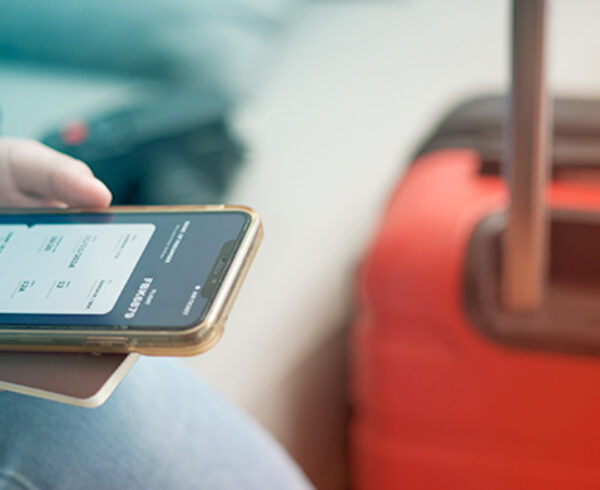Comped flights in first or business class, stays at ritzy hotels, and a generous per diem — what’s not to love about business travel? While work travel can seem luxurious and filled with perks at first glance, there’s still a portion of unhappy travelers out there.
Unfortunately, those unhappy travelers can spell trouble for a travel manager or arranger.

Why Are Some Employees Unhappy Travelers?
Whether or not a Traveler is happy with their business travel experience will depend upon a range of factors that a travel manager or arranger often has no hand in.
For example, there have been studies that show business travel takes a mental, physical and social toll. Some Travelers may feel anxiety around business trips. Some may find business travel extremely stressful. Others may find the experience lonely and exacerbating to existing mental health concerns.
Other articles say that business travel can wreak havoc on a family or partnership. One relationship expert went so far as to tell CNN that the matter is simple — “two people who emotionally feel strong in their relationship don’t accept jobs with lots of travel away from their spouse.”
From a physical health perspective, Harvard Business Review noted that frequent business travel could coincide with stress-related disorders, chronic disease, back disorders, asthma and higher alcohol consumption. There’s also the struggle of maintaining healthy habits while traveling for work, including maintaining an exercise routine and keeping with a consistent diet.
All of these aspects of business travel can make for unhappy Travelers, and they’re all things that a travel manager or arranger can’t help with — at least on the surface level. Look a little bit deeper, though, and you may find that you can do more to make your travelers happy than you first assumed and even alleviate some of the above common complaints.
Here are several ways travel managers can make their unhappy travelers’ lives just a little bit easier and maybe just a little bit happier.

1. Be Flexible
First and foremost, be flexible with your travel policy. Employees want flexibility now more than ever following the office shutdowns and work-from-home months that occurred throughout 2020 and 2021. Give them that flexibility as much as possible.
If you can, make it easy for employees to travel in the way that best suits their lifestyle and needs. Think about how your current travel policy impacts their work-life balance and adjust it accordingly.
You may just find that this flexibility helps Travelers better manage personal relationships and ease stress for an all-around better experience.
Don’t think you should have to adjust your travel policy just to appease unhappy travelers? Keep in mind that an unhappy employee is an unproductive employee — and unproductive employees equal unproductive business trips that equal a lower ROI than you might see from your organization’s business travel otherwise.
2. Make It Easy
For the unhappy Travelers who already feel stress and anxiety around travel in general, when you add layers of confusion surrounding the booking process, compliance and all the other elements that go into business travel, it’s just a recipe for a breakdown. Make it as easy as possible for Travelers to manage their business travel and remain compliant.
Often, making the process easier is just a matter of thorough and continuous communication. As a travel manager, you should be communicating with your affected teams on a regular basis to mitigate issues, garner feedback and help make travelers’ experiences as seamless and enjoyable as possible.
3. Hear Your Unhappy Travelers Out
Along these lines of communication and garnering feedback, be sure to actually hear your unhappy Travelers out. Why are they unhappy, and what can you do to fix it? If more than one employee is voicing the same concern, it’s a significant sign your travel program has room for improvement.
As you solicit feedback from unhappy travelers, remember not to argue or strike back. This is not a fight, and their unhappiness is not an attack against you or your job. Instead, it’s an opportunity for you to show your value as a travel manager even further by alleviating unhappy travelers’ concerns.

4. Manage Traveler Expectations
The best way to ensure expectations are met is to set the right expectations in the first place.
Before a new employee even joins your team, if they’re going to be in a traveling role, ensure the right expectations are set regarding travel style, frequency, length and other aspects of the job. So that they’re not blindsided by business travel in a job that’s just not what they’re looking for.
For existing employees, continue managing those expectations through frequent, consistent conversation.
Nothing Working?
If you’ve tried all the above and you still have the few odd unhappy Travelers who can’t be pleased, it might be a personal issue that can’t be helped by a travel manager or new travel policies.
In these instances, it may be time to reevaluate whether or not that individual employee is suited to business travel and/or their role and whether or not anything can be done about the amount of time they spend traveling.
You may also want to preemptively establish a policy or protocol for how situations such as this are addressed. If an employee suddenly no longer wants to, or cannot, travel for work, is there anything that can be done? What’s fairest for all employees, as well as for the organization?
With the Right Help, You Can Keep All Your Travelers Happy
Sometimes, the best thing you can do for unhappy Travelers is streamline their experience, take confusion and hassle out of the equation, and ensure duty of care so that they’re assured of their safety when traveling.
When you work with JTB Business Travel and employ our range of business travel solutions that make business travel easier for everyone in an organization, that’s exactly what happens.
Learn more about our services and get in touch today to get started.














Leave a Comment